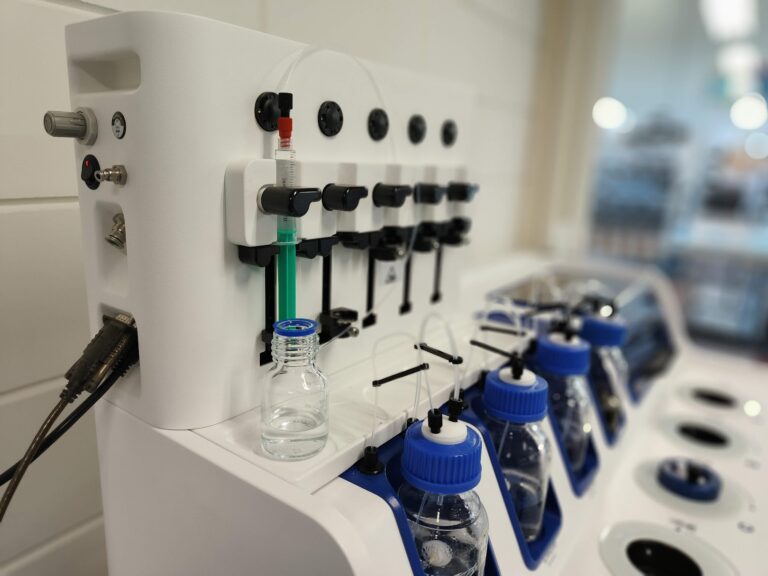Supply Chain Management for Medical Clients
Introduction
Innovation in the medical industry not only requires technological advancement but also demands reliable processes within the supply chain. Medical devices are increasingly developed and manufactured internationally. Components are sourced from specialized suppliers, while assembly is often outsourced to contract manufacturers. A shortcoming in any of these links can directly impact device performance and, consequently, patient safety.
In this article for clients of Technobis High Tech Solutions, we explain why supply chain management is crucial, what role the contract manufacturer plays, how ISO 13485 governs processes, what steps are necessary for supplier qualification, and how risks are systematically managed.
Why Supply Chain Management Is Important in the Medical Industry
The quality of a medical device depends on the components from which it is assembled. Most medical companies manufacture only a limited number of components themselves; the majority of parts and services are sourced externally. Effective supplier management is therefore the first line of control against potential product defects. It ensures that purchased goods and services meet the required specifications and is an integral part of the quality management system (QMS). Good supplier management not only helps prevent errors but also supports cost control.
International standards and regulations emphasize the importance of structured supplier evaluation, selection, and monitoring. ISO 13485 (section 7.4) highlights the need for the selection, evaluation, and monitoring of suppliers.
The Role of a Contract Manufacturer Like Technobis High Tech Solutions Within the Chain
Many medical companies outsource production to contract manufacturers. Although the work is delegated, the legal manufacturer remains responsible for supplier oversight. While the contract manufacturer manages incoming goods and produces the final product, the manufacturer must drive supplier qualification and monitoring. Therefore, clear agreements and quality contracts are essential, and performance of a contract manufacturer like us should be reviewed systematically. We are always open to audits by our medical clients!
ISO 13485 and the Supply Chain
ISO 13485:2016 is the international standard for quality systems in the medical sector. Section 7.4 of the standard requires organizations to implement a risk-based purchasing procedure. The process begins with defining product and quality requirements, followed by selecting suppliers who can meet them.
Key requirements from the standard include:
Supplier selection and evaluation – Suppliers must be selected based on their ability to meet both specification and additional organizational requirements.
Risk-based approach – Each purchase must be assessed in context: do the delivered goods directly affect the performance of the medical device? What happens if the supplier fails to deliver?
Monitoring and verification – Deliveries must be checked to confirm they meet the ordered specifications. Depending on risk level, additional quality controls, testing, or audits may be necessary.
Documentation and traceability – The standard requires maintaining a list of qualified suppliers. Documents such as specifications, test results, and quality agreements must be traceable.
Outsourced processes – According to clause 4.1.5, the organization remains responsible for compliance when processes are outsourced. Control measures must be proportional to the risk and documented in written quality agreements.
Impact on Supply Chain Processes: Documentation, Traceability, and Risk Management
Documentation and Traceability
An effective Quality Management System (QMS) depends on careful and complete documentation. This includes not only product information but also systematic record-keeping of supplier and distributor documentation. Suppliers are required to ensure traceability for the components they provide, in accordance with our requirements.
Risk Management
ISO 13485 mandates a risk-based approach. Depending on the risk level, extensive (incoming goods) inspections, audits, and quality agreements may be required. Additionally, Failure Mode and Effects Analysis (FMEA) is used to systematically identify process risks. FMEA is a method to identify potential failures in a product, process, or system, analyze their effects, and assess their associated risks.
Supplier Selection and Evaluation
Initial supplier selection often begins with input from our clients. For suppliers providing critical components, a formal evaluation process is initiated.
The risk-based approach is clearly reflected in this process. Suppliers of components for medical products are classified per commodity and labeled as critical or non-critical. For each commodity, a specific questionnaire is prepared and sent to the relevant suppliers. These questionnaires are based on an FMEA conducted across the entire supply chain. Suppliers that can present a valid ISO 13485 certificate with an applicable scope for the goods delivered may be exempt from the questionnaire. All other suppliers are evaluated based on their responses.
Performance Indicators and Continuous Improvement
Qualification is not the end of the process: supplier performance must be monitored periodically. A supplier scorecard is an effective tool for objective evaluation. Our scorecards include metrics such as:
Timely and complete deliveries – how often are orders delivered on time and in full?
Non-conforming products – number and type of deviations from specifications
Recurring non-conformities/disapprovals – how often are corrective actions required per supplier, or do the same issues repeat?
By regularly evaluating these scores, trends can be identified, and decisions are increasingly based on objective data. Suppliers receive their scorecard once their performance falls outside the set limits. Once issued, scorecards continue to be shared periodically so suppliers can monitor and improve their own performance. In cases of consistently low performance, the supplier may be required to submit a SCAR (Supplier Corrective Action Request), undergo an audit, or be replaced.
Stronger Together
Together with our clients and suppliers, we are building a strong, risk-based supply chain management system to improve the quality of medical products and contribute to safer healthcare for patients around the world.



